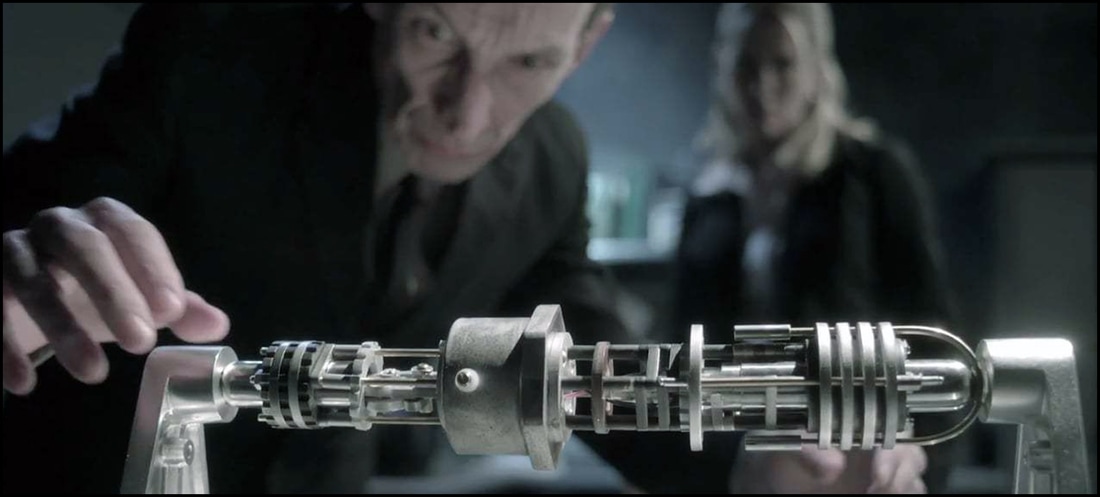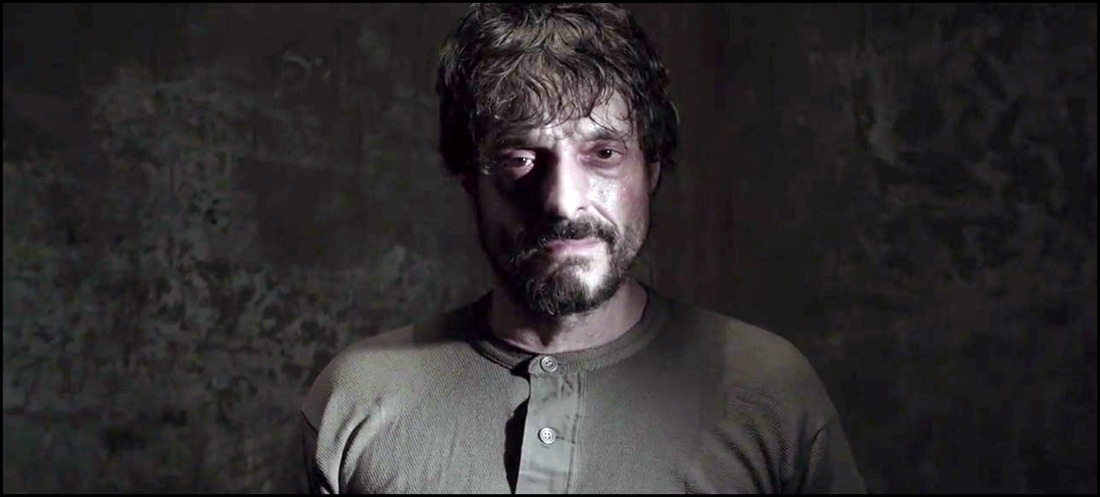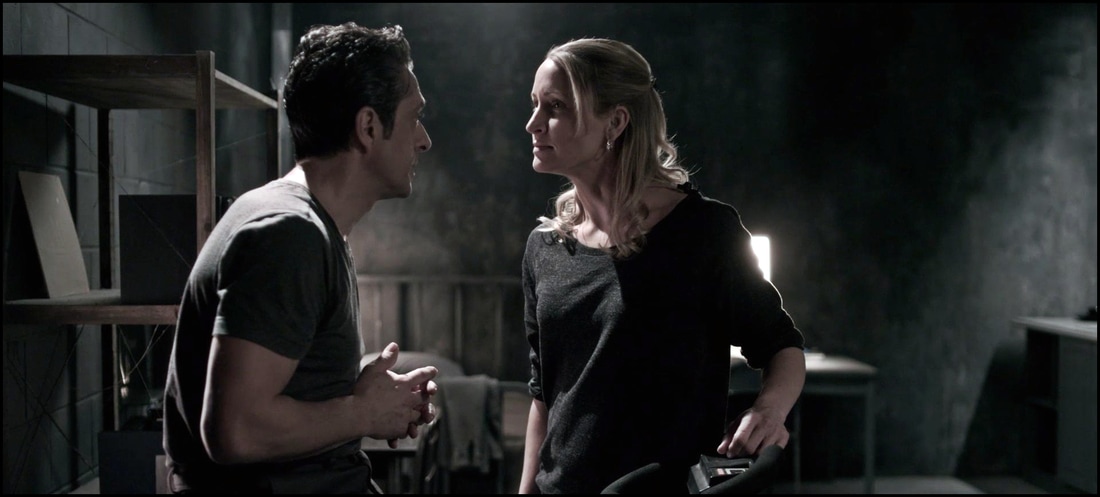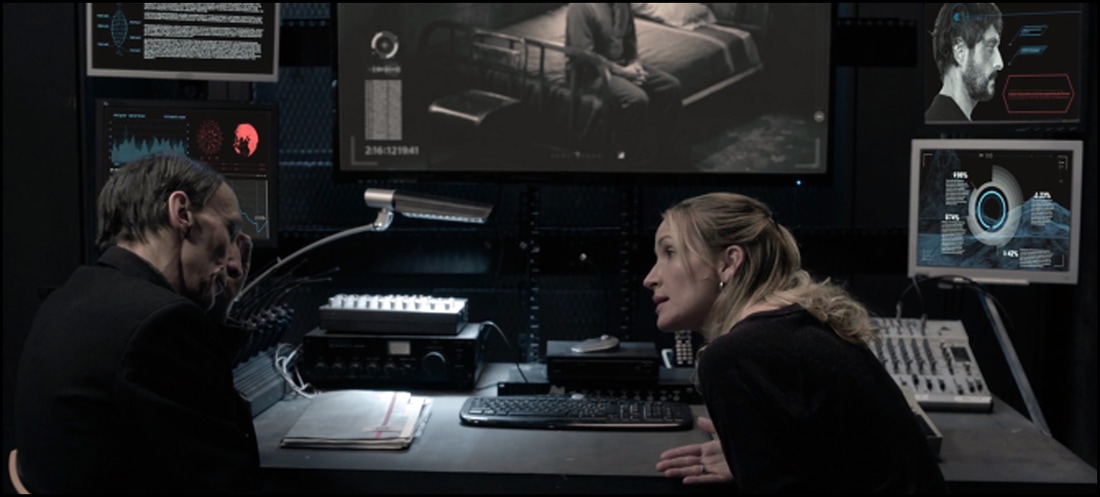Largely, I think the appeal is grounded in a very human conceit: which of us wouldn’t want a do-over? I’m certainly not talking about reliving an entire life but rather getting the chance to correct a bad or lesser choice made in the past. Indeed, such an inviting proposition has fueled motion pictures from Terry Gilliam’s dramatically visionary Twelve Monkeys (1995) to Robert Zemeckis’ comical Back To The Future trilogy (1985, 1989, 1990); so a little ditty like Prisoner X certainly begins from a position of universal appeal.
However, getting from start to finish would appear to be trickier than you’d expect if writer/director Gaurav Seth’s finished product is any indication.
And must it be so lethargic?
(NOTE: The following review will contain minor spoilers necessary solely from the discussion of plot and/or characters. If you’re the type of reader who prefers a review entirely spoiler-free, then I’d encourage you to skip down to the last few paragraphs for my final assessment. If, however, you’re accepting of a few modest hints at ‘things to come,’ then read on …)
“As the world rages in war and civil strife, CIA Agent Carmen Reese arrives at a secret underground prison to interrogate a captured terrorist with links to recent attacks on American soil. But the prisoner is more than he appears – he has arrived from the future with ninety-eight other time travelers who are still at large and wreaking havoc across the globe. Now it’s a race against the clock as Carmen and the prisoner engage in a battle of wills to see whose version of the future will triumph.”
Cerebral ideas don’t always make for invigorating experiences.
Even NBC’s suits back in the mid-1960’s told no less than Gene Roddenberry himself that his first pilot for Star Trek needed a do-over, thus giving the creator the opportunity to pack a bit more sizzle onto his steak. Since then, films like Gattaca (1997), Snowpiercer (2013), and Predestination (2014) all share the requisite DNA to make for didactic storytelling but – in each of their day – they still failed to build an audience that embraced them in such a way as to make them fiscally profitable. The bottom line? People rarely want to “think” about their entertainment, and Prisoner X’s various plot points jump across nearly a twenty-year timespan with barely enough explanation why so many trips were absolutely necessary … but I don’t want to get ahead of myself.
Theatrical mechanics being what they are, the premise is undeniably appealing. All of the required pieces are certainly present. You want an evil villain? Check. You need some fantastic technology? Check. You desire a flawed central hero to root for? Check. Still, Prisoner X fails to come together in any meaningful way, and – like so many esoteric SciFi thrillers that have come before it – the fault lies chiefly tied to the fact that so very little of it is relatable.
Michelle Norden’s Carmen Reese (the hero) spends far too much time nursing her personal demons though exactly what they are and why they persist never quite gets the cinematic epiphany required for an audience to take her past struggle and aptly apply it to her interrogations. Romano Orzari’s Ramiro (the time-hopping terrorist) possesses so little charisma here it’s hard to imagine him as a legitimate terrorist with the machismo necessary to lead others in some global conflict; he occasionally seethes hatred the way cinema bad guys do but never consistently much less convincingly. Julian Richings and Damon Runyan are largely wasted with too little screen time for viewers to care about much less accept that each would’ve personally given fifteen years of their lives over to “interrogating” (presumably) this solitary subject while gaining (apparently) so little from him.
For those still watching, director Seth does throw in some fanciful artistic flourishes with camera angles and shadows, much of which had me wondering what purpose they served in this tale that should perhaps have been better grounded in reality, especially given the timeliness of its subject matter. Under Seth’s watchful eye, much of X looks great but ends up meaning so little.
When you don’t care about your protagonist, then her journey has no impact. When you’re asked to accept that the villain as evil but never given sufficient proof, then he’s as much a victim of the story as you are. When these two together never generate the level of electricity required to bring it all to life, then you’re left with actors delivering words from the page. X’s best scenes – the various interrogation sequences – feel more a product of a good screenplay (a solid performance piece) than they do a series of legitimate exchanges brought about by two master chess players trying to outmaneuver one another. No matter how good they sound, they’re still just “words off a page.”
Prisoner X takes a convincing central idea – that time travelers cannot ‘change the past’ but instead create new timelines – and then pretty much does nothing with it in order to tell this story this way, seemingly justifying its own reality. Why? What for? Unless you’re in the business of making “torture porn” for interested Jihadis, what purpose does Prisoner X serve? A twist ending of this size wasn’t big enough to warrant the ninety-minute run time, and it was easy to see coming from a mile away. If you’re sending a villain back in time to destroy us, what difference does it truly make since he’s only building a different world? Does he not care about the fact that he’s maybe no hurting those he intended to hurt? And he’s only spending his time incarcerated anyway?
So many questions …
For the record, I’ve read that the film has played and has been well-received at some genre-specific festivals, and of that I have no doubt. Audiences found in those places include folks who like this kind of thing because it gives meaning to their various perspectives as well as fuels their artistry. Certainly, I can see academia and the general film intelligentsia embracing Prisoner X’s dour dissertation on war, humanity, and politics. Out here where films are chiefly vehicles to entertain and educate, parts of X play like so much of the usual anti-American propaganda … but kudos to those involved for accomplishing that at a fraction of the cost! Hollywood, take notice: you don’t need to pay Jessica Chastain so much to bash the U.S. Or Matt Damon. Or George Clooney.
In denying a universe its various paradoxes, Prisoner X poses the existential quandary of why should this story even exist in the first place except for being told. That’s just not enough for this simple-minded knucklehead.






 RSS Feed
RSS Feed